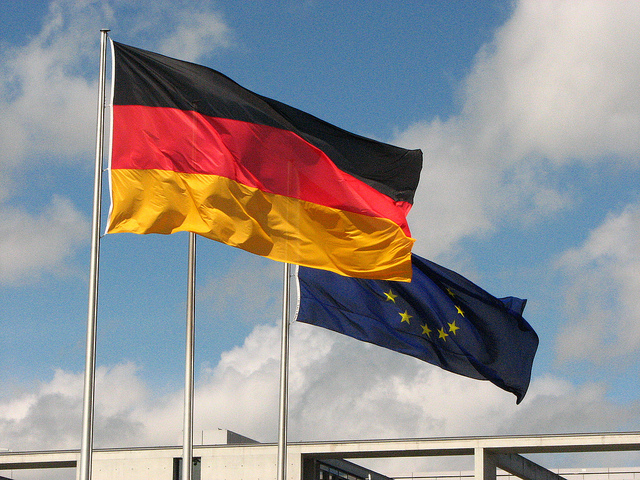Over a week has passed since the UK electorate narrowly voted to leave the European Union (EU). The MSCI Europe Index fell 10% in the subsequent two days and then bounced back to recover most of that drawdown. On the currency front, sterling fell 10% when compared to pre-referendum levels.
Interestingly, Investec notes that changes in credit spreads and sovereign bond yields in Europe have remained muted indicating stability in that part of the financial market. But for Ken Hsia, portfolio manager European Equity Fund at the firm, this is quite different from the reaction to concerns of a slowdown in 2011/12.
According to the Investec expert, the UK’s decision to leave the EU has resulted in more short-term uncertainty, there is arguably now an opportunity for dialogue and a re-casting of policy to refresh relationships across Europe on a footing that is more aligned with current thinking about the role and purpose of the EU.
How these discussions evolve should interest those outside the region as some themes have global resonance. With government bond yields largely underpinned, Investec believes the relative attractiveness of equities remains intact, especially when corporate balance sheets are the healthiest they have been for many years. Naturally, the pace of recovery in corporate earnings once again comes into question. However, the firm continues to see good bottom-up investment opportunities within the region as identified by our 4Factor process.
What are the opportunities and risks posed by Brexit for European equities?
It is clear that the prevailing uncertainty will be a drag on economic growth, however, we are seeing some new steers from our 4Factor process. We believe, capital projects with long payback periods will be shelved until there is more certainty. However, we believe, projects with shorter paybacks should not be affected, especially those projects which boost productivity.
In the Investec European Equity Fund, we have reduced exposure to companies that are affected by weakening domestic consumption, but we are happy with our holdings in exporters, as they should see some tailwinds from the weaker sterling.
We are considering further investment in the mining sector, where again the supply/demand dynamic after several years of oversupply is now showing some signs of better balance. We note that European companies in the global energy (Total, BP, Royal Dutch Shell) and mining (BHP Billiton, Rio Tinto) sectors are world-class companies.
How is the Investec European Equity Fund currently positioned to UK equities?
At present, the Investec European Equity Fund is approximately 3% underweight the UK, with a combination of domestic companies (Bovis, BT, National Grid, Just Eat) and some multi-nationals (Shire, BP, Imperial Brands, Paysafe Group). Of these, we believe, Bovis and Just Eat are the most exposed to changes in the UK economy. However, for multi-national companies the UK is typically less than 10% of revenue. The portfolio’s greatest overweights by country are France and the Netherlands.
As well as the direct impact from revenue exposure there may be further effects, but many of these will take some time to come to fruition. For issues such as regulatory change, tourism or trade negotiations, it is too early to assess the impact. In aggregate though, we expect performance to be driven by individual stock price moves rather than portfolio positioning. The beta of the portfolio is 0.98, with market risk therefore a minimal component of tracking error.
Brexit aside, where are we seeing signs of recovery in Europe?
To answer this question, we need to take a closer look at the current state of economic recovery in Europe. Speci cally, we will look at two cyclical (economically-sensitive) industries which have been leading indicators on our sector steers, the automotive industry and the cement industry, to re ect on current demand trends and reasons for the sluggish pace of recovery.
What are the risks to our investment case on European equities?
Though the near term may be dominated by mixed headlines, stock markets normally embed a longer-term perspective. We continue to see a recovery in European corporate earnings, albeit the pace can be frustrating. Also, we observe more companies adopting self-help strategies to enhance corporate returns which, if successful, could lead to enhanced shareholder returns. Corporate balance sheets are the healthiest they have been since before the global financial crisis. In this regard, the potential value created through any re-leveraging – for example; M&A activity and share buybacks – has yet to be realised for Europe, which is not necessarily the case for the US.
Dividends are growing due to improving cash flow and strengthening balance sheets, which have not seen the re-leveraging that often occurs at the end of stock-market cycles. To put things into perspective, the historical price chart for the Eurostoxx 50 Index below (covering 50 ‘blue chip’ stocks from 12 euro-zone countries) suggests the market is trading back in line with long-term trends. Analysis shows recent cycle troughs in 2009, 2011 and 2012, when headlines had a notable impact on market dynamics.


